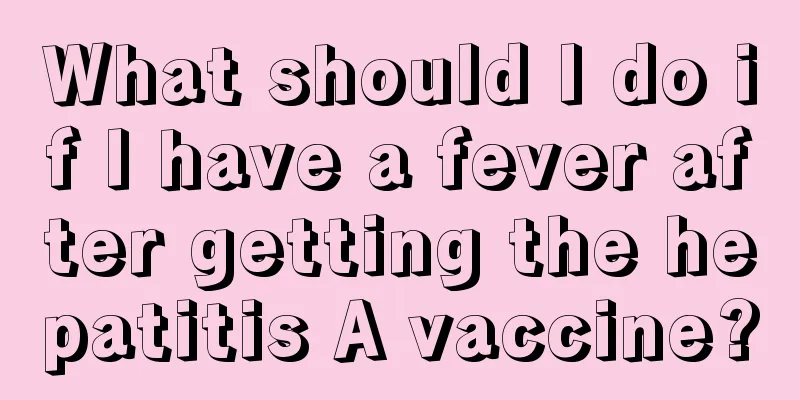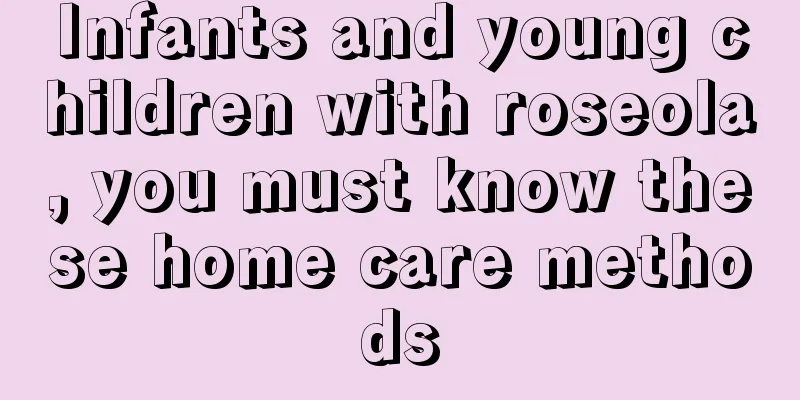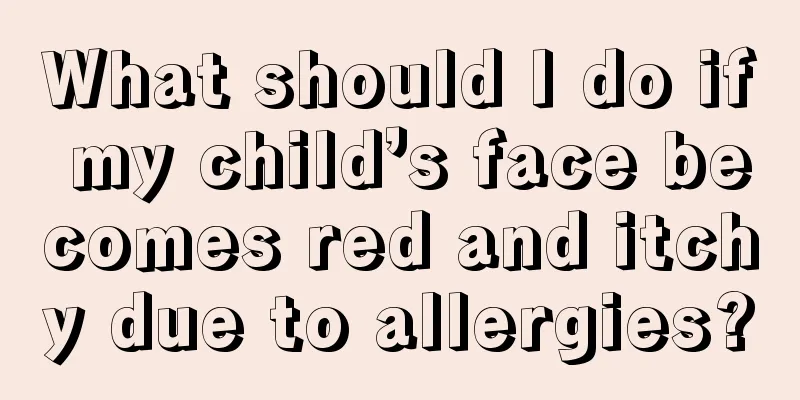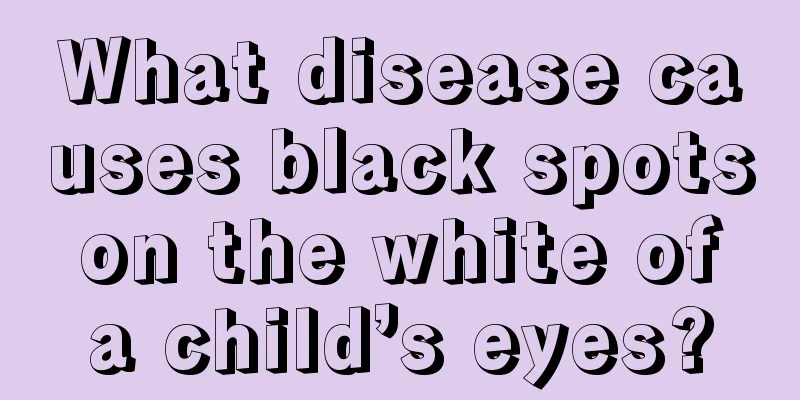What should I do if I have a fever after getting the hepatitis A vaccine?

|
Vaccines are currently a common method of injection, and many children need regular injections when they reach a certain age. However, you need to pay attention when vaccinating your child. The selection of types has age and time, which is very important. Not all vaccines need to be given, but some vaccines must be injected. Generally, if there is a fever or other adverse symptoms after the vaccination, what should you do in this case? What should I do if a child develops a fever after receiving the hepatitis A vaccine? In endemic areas, hepatitis A is more common in children over 6 months old. As they age, their susceptibility gradually decreases, so hepatitis A is less common in adults. Therefore, it is necessary to vaccinate your baby against hepatitis A. Currently, there are two types of vaccines used in the domestic market to prevent hepatitis A: domestically produced live attenuated hepatitis A vaccines and imported purified inactivated hepatitis A vaccines. The domestically produced live attenuated hepatitis A vaccine has good immune effects, is easy to administer, and is inexpensive. The domestically produced hepatitis A vaccine only needs to be administered once. Imported hepatitis A vaccine is a dead vaccine, so it needs to be administered twice, with the second dose required 6 months after the first dose. About 8 weeks after receiving the hepatitis A vaccine, high levels of antibodies can be produced, giving you good immunity. The antibody positivity rate can reach 98% to 100%, with good immune persistence, and immunity can generally last for 5 to 10 years. A booster shot after 5 to 10 years can maintain immunity to the hepatitis A virus and provide long-term protection. A few people may experience local pain, redness and swelling after vaccination. Systemic reactions include headache, fatigue, fever, nausea and decreased appetite. It usually resolves on its own within 72 hours. Occasionally, a rash may occur, but no special treatment is required. Symptomatic treatment can be used if necessary. What should I do if my child has a fever after receiving the hepatitis A vaccine? It is normal to have a fever after vaccination because the vaccine itself is a virus with reduced activity and will inevitably cause certain side effects after vaccination. Let your baby drink more boiled water and rest more. You can also put thin slices of raw potato on the needle hole to absorb the swelling. Pay attention and observe. If the fever is above 38.5 degrees, please go to the hospital for diagnosis and treatment. Taking a bath may have a cooling effect on low-grade fever caused by high ambient temperature, but it is best not to take a bath after vaccination, at least not within 4 hours. You can wipe your body. If the fever is above 38.5 degrees, please ask a doctor immediately to confirm whether it is a viral infection or a bacterial infection. A characteristic of viral infection is recurrent fever. For viral infections, use antiviral drugs (such as ribavirin); for bacterial infections, use antibiotics (such as cephalosporins). Don't rush to reduce the fever, as fever is only a symptom. The cause of the disease must be found out. |
<<: Precautions for newborns when going out
>>: What vaccines should babies receive in the third month?
Recommend
How to treat hot hands and feet in babies
When the baby's hands and feet are hot, paren...
What medicine is good for whooping cough in children?
Coughing is a normal reaction of our body, but fr...
Treatment of baby eczema skin disease
Children's skin is relatively delicate, and o...
What to do if your child has a cold and coughs
Babies are the apple of their parents' eyes. ...
Can honeysuckle water treat baby eczema?
After some babies get eczema, many parents don’t ...
What are the red spots on the baby's head?
When babies are very young, they may have red spo...
Can children eat nectarines?
Nectarine is a very common fruit in our daily lif...
Will being fat affect a boy's development?
When supplementing children's nutrition, pare...
What should children supplement in spring?
No one likes winter. The long winter is finally o...
Baby intelligence development
We will be happy about the birth of the baby, but...
Prevention and nursing of severe pneumonia in children
Everyone is familiar with pneumonia. When childre...
What are the development standards for a three-month-old boy?
There are many issues that mothers need to pay at...
What is the reason for children's nasal mucus?
Children have relatively low resistance and will ...
What should I do if my child has indigestion and vomiting? These methods are very effective
Indigestion in children is actually very bad. Chi...
What to do if an eight-year-old child has a poor appetite
For every child, if they want their growth and de...









